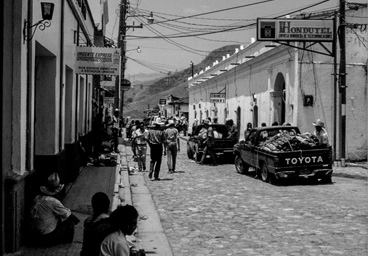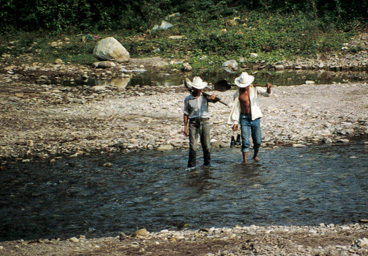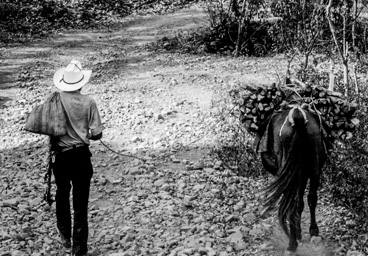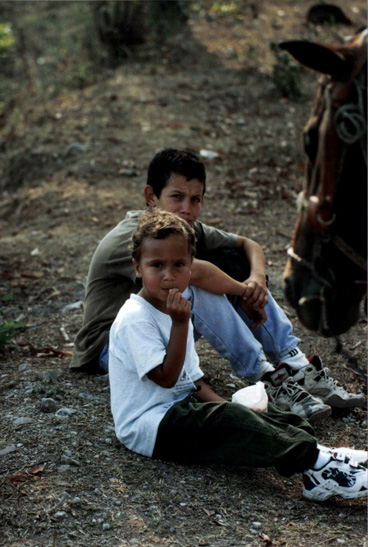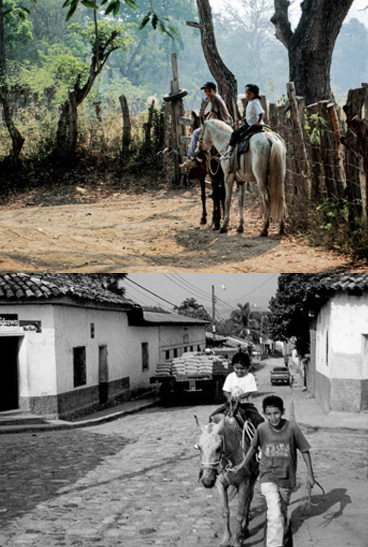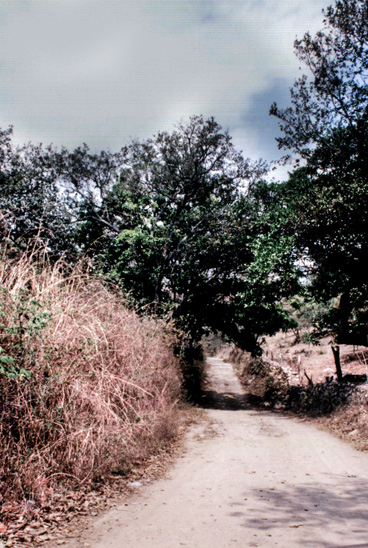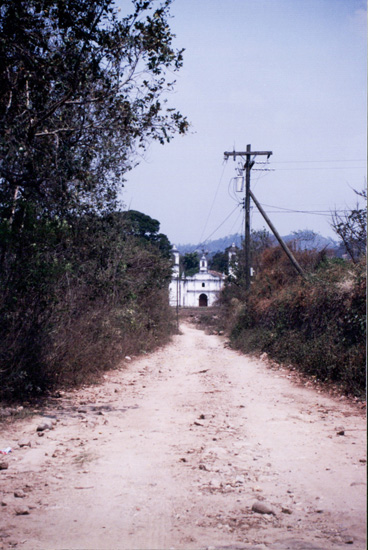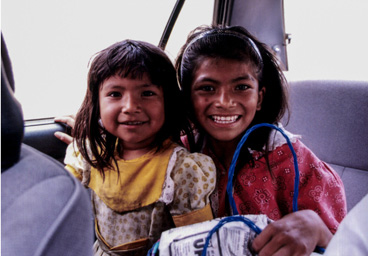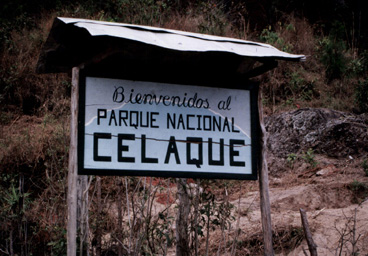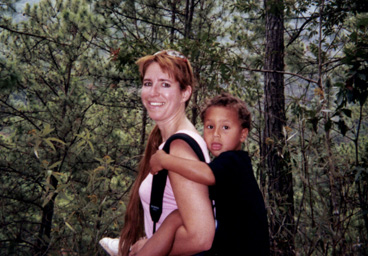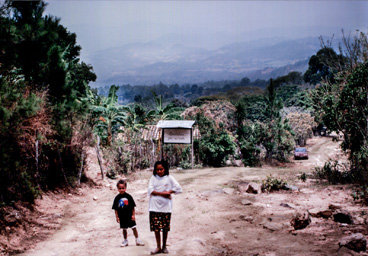Honduras
Because of my interest in Central America, it was nothing unusual that I decided in 1998 that my almost-4-year-old son David and I should head down to Honduras, just to check it out. What you'll find below is excerpts of my diary from our travels.
Horseback Riding in Copan de Ruinas
Copan de Ruinas is a very relaxed place...no sense of danger...interested smiles but without any leers. A lot of obvious poverty though... Coming into town, we were approached by a young boy, Carlos, age 12, who wished to be our tour guide on a horseback ride which was interesting. Tobacco pickers, workers at the drying houses, kids playing in the dirt road in front of the tobacco house, whole families bathing in the river, men with machetes going who knows where, men driving cattle on foot up steep hills, men selling watermelon from a path by the side of the trail.
Gracias de Dios
Because of the heat, we are heading to the highlands. We will head to Santa Rosa de Copan, but first we'll drive to the town "Gracias de Dios" which a Honduras tourist magazine describes as "one of the best kept secrets in Honduras is the colonial city of Gracias". I had to laugh, arriving in Gracias -- dusty, rutted, rocky and people-covered dirt roads, in scorching heat, with mostly unremarkable (but apparently colonial) buildings lining the narrow streets.
Our highland destination, Santa Rosa de Copan
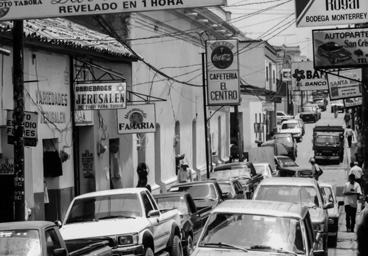
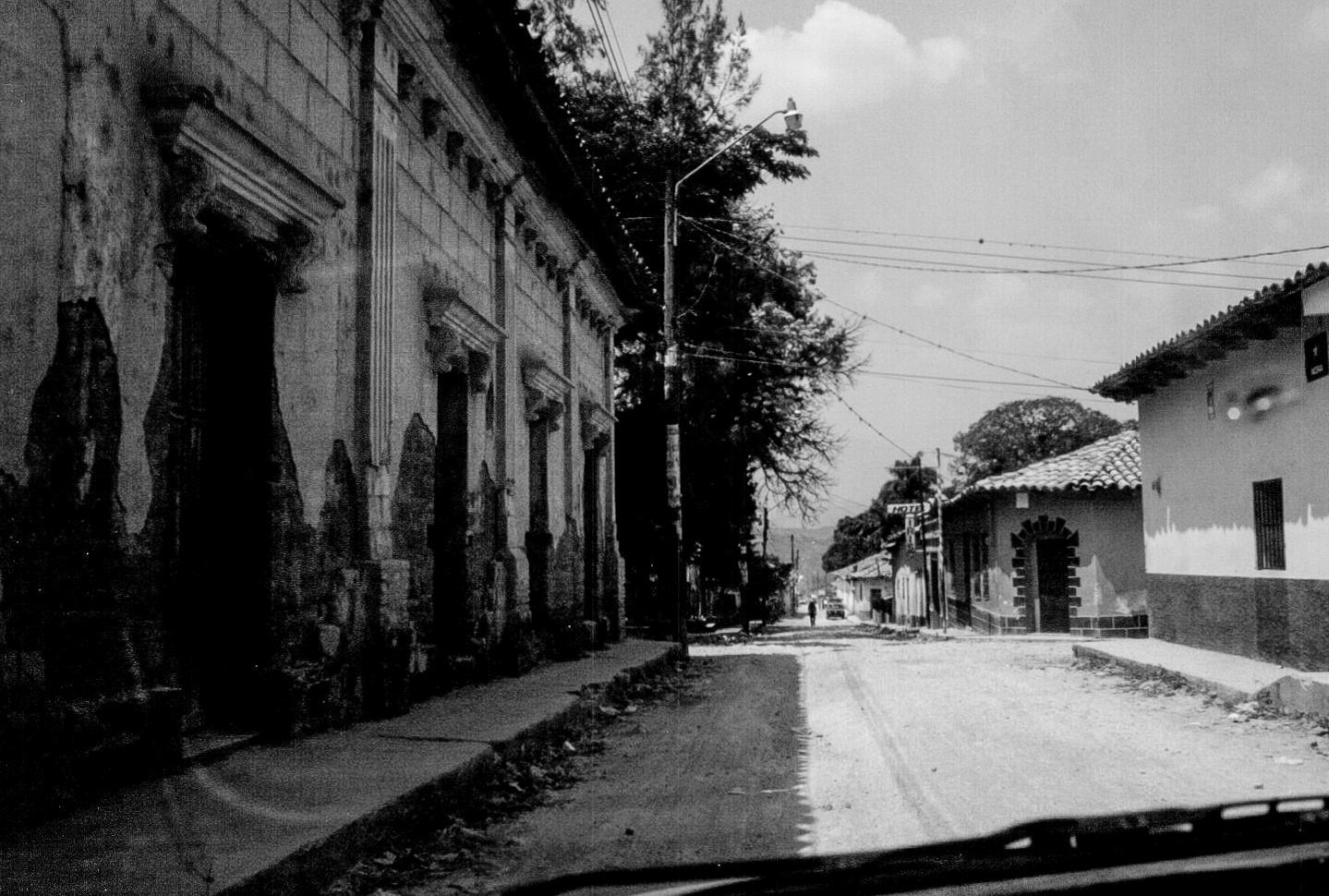
I want to go through Gracias de Dios because Parque de Celaque - a cloud forest with many elusive quetzals (a bird) - is above the town. No signs for Celaque at all, so I must have asked 6 people where was the road to Celaque.
Every person I asked for directions - the man with the machete and oxen, the man with the burro carrying bundles of sticks, kids coming back from town where they were selling chiclets - said "directo" and then I'd inevitably come to a fork in the road, with no signs of course. I'd go "directo" for a while and come to another fork, then ask someone else. And let's define "road" - one and a half cars wide, dirt, boulders, ruts a foot deep, an obstacle course.
The Drive to Parque de Celaque
Finally, I picked up two little girls who said they were going toward Celaque. A few minutes later, I picked up two more little girls - four little girls in the back seat, the oldest 12, the youngest about 5, all of them grinning ear-to-ear as if this was the most interesting thing to have happened in a long, long time.
The oldest girl asked did I want her to come along to the parque and I said sure. So we dropped the other girls off at their houses -- open air, more or less, made of long thin tree trunks and mud. No electricity or running water, of course. And when we got to the oldest girl's house, her younger sister jumped out and her mother just waved. I asked whether she needed to talk to her mother and she said no. I looked up at her mother who, sure enough, was waving good bye, not "hello, what are you doing with my daughter in your car."
They're Gonna Need Toys
Driving back from the park, David (almost 4) asked why the kids he saw were always outside of their make-shift housing. I said they were playing and there probably wasn't very much inside the houses. I said there were no TVs and the kids probably didn't have any toys.
David said he had lots of toys he didn't use anymore, baby toys he said, and we should give those toys to the kids. He said, "But, mommy, I bet the mommy and daddy don't have a toy box for the kids. So they'll just have to make a mess with the toys." I agreed that this was likely. On our return to the US, David did, indeed, clean out his toy closest for a donation to charity.
The Men With Machine Guns and Gold Teeth
On the long drive Return to the airport at San Pedro Sula, we were stopped at a "road block"by the "transito", sort of the equivalent of the highway patrol. These "transito" don't have cars - they just get dropped off on the side of the highway and are expected to walk out into the road and stop people from time-to-time. Now, in El Salvador, I'd be nervous. But I've been very comfortable here for these last several days and I'm not nervous. In fact, I'm annoyed because now David, who was sound asleep with his seat fully reclined, is woken up as soon as I stop.
I've got one "policia" at my window and two others at David's window. Talk about a vivid memory. My young son sitting quiet and alert in the passenger seat, with two men at his window, machine guns in their hands, big ol'grins on their faces, gold-rimmed teeth sparking in the sun.
The guy at my window is asking me questions, and I tell him I don't understand, although I do. He tells me that they just need a ride to the next road block (because, again, they don't have a car); they want me to give the three of them, and their machine guns, a ride. It's probably good that I didn't have a chance to really reflect on this, but now I'm really annoyed. "In here?", I ask incredulously when he points to the tiny back seat. "No. My son is sleeping". I just keep saying no, I don't understand, no, is this really necessary, ungh un, no, shaking my head...
The cop at my window just looks at me. He asks for my license which I hand him. Then he says something else and I say I don't understand.
Exasperated by his inability to intimidate me, he waves me on....

